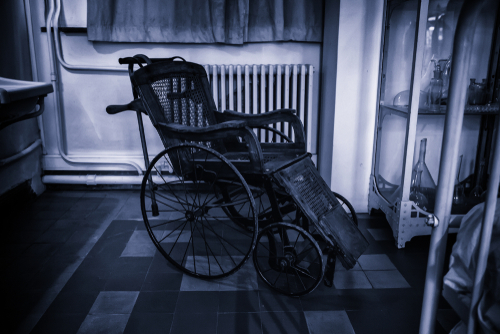Although many patients recover from pressure ulcers, undiagnosed and untreated bedsores can cause osteomyelitis and other serious infections. Severe infections associated with bed sores can lead to sepsis and even death.
Nursing home residents who are bedridden are at great risk of developing pressure ulcers. These ulcers, clinically known as decubitus ulcers but more commonly called bed sores or pressure sores, result from a breakdown of the skin from unrelieved pressure against the skin. This kind of unrelieved pressure results from spending long periods of time immobile in bed or in a wheelchair. Nursing home caregivers are responsible for regularly turning and repositioning any patients who are at high risk for developing pressure sores; unfortunately, in cases of nursing home neglect, bed sores are allowed to develop and even to deteriorate into severe pressure wounds that invite severe infections.
Bed Sores and Serious Infections
Any break in the skin caused by pressure is prone to infection. Bed sores that are not swiftly addressed or that go undetected may deteriorate into late-stage bed sores and develop infections. As moist or dirty skin is especially susceptible to infection, infection rates from pressure sores increase among incontinent elderly nursing home residents. Often times bed sores develop on the buttocks, coccyx, or genital area, which can come in contact with urine or stool. The wearing of adult diapers can increase this contact with bacteria and introduce a moist environment that can invite a host of infections, including serious infections like osteomyelitis.
Bed Sores and Osteomyelitis
According to the Mayo Clinic, osteomyelitis is when a bone becomes inflamed due to an infection in the bone or bone marrow. Osteomyelitis can result from an infection spreading from nearby tissue or blood, or it can originate in the bone if a wound delivers bacteria to the bone. Advanced-stage pressure ulcers can penetrate deep, tunneling through skin layers and muscle to the bone, making a patient highly susceptible to infection and osteomyelitis. Bone resistance to infection decreases as people age.
While osteomyelitis can be accompanied by such symptoms as fever, fatigue, and swelling and pain in the affected area, osteomyelitis can sometimes be symptomless or show symptoms that appear to be the sign of another problem and thereby go undetected. This is particularly true for the elderly, especially if they have compromised immune systems or other underlying illnesses. Since osteomyelitis requires swift, aggressive treatment, having it go undetected puts patients at risk of certain complications, including bone death and sepsis.
Bed Sores Can Lead to Sepsis
The CDC recognizes sepsis as a life-threatening emergency. Sepsis, a serious condition common among older adults, can result from the presence of an infection in the body, like those caused by pressure sores. Infection-fighting chemicals released into the bloodstream can sometimes trigger an imbalanced bodily response, which can negatively impact or damage organs. A severe drop in blood pressure happens when sepsis progresses to septic shock. Septic shock, in turn, can lead to death.
Elderly individuals, such as nursing home patients who develop serious infections like osteomyelitis from late-stage pressure sores, run a higher risk of developing sepsis. Having a compromised immune system or certain chronic illnesses like cancer or diabetes make the elderly especially vulnerable to developing sepsis as a result of pressure ulcers. Sepsis is especially dangerous among elderly adults, who have a harder time recovering from it.
How to Avoid Dangerous Infections Caused by Pressure Ulcers
Avoiding serious infections caused by late-stage bed sores can first and foremost be achieved by avoiding bedsores in the first place. Nursing home caregivers can accomplish this by administering basic care:
- Assessing residents at high risk of developing pressure ulcers
- Turning and repositioning residents at least every 2 hours
- Using pressure-relieving apparatus such as foam padding or specialty bedding
- Providing adequate nutrition and hydration
Holding Nursing Homes Responsible for Bed Sore Neglect
By law, every Philadelphia / PA and NJ nursing home needs to assess every resident for his or her potential to develop bed sores. It is up to the nursing home to prevent pressure ulcers from occurring and to swiftly remedy any bedsores that do develop. Nursing home neglect and abuse attorney Brian P. Murphy has extensive experience dealing with bedsore-related cases in Pennsylvania, Philadelphia, and New Jersey nursing homes. If your loved one who resides at a Philadelphia / PA or NJ nursing home has developed a serious infection from a bed sore, or is afflicted with a pressure sore at any stage, contact pressure ulcer attorney lawyer Brian P. Murphy to discover your legal rights and options.







